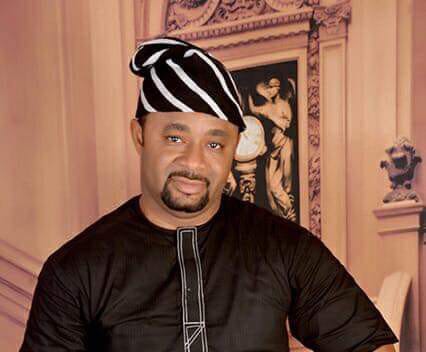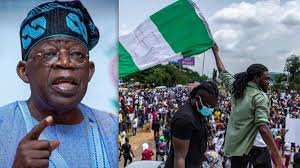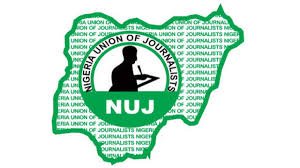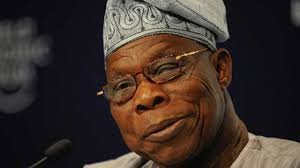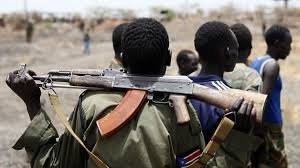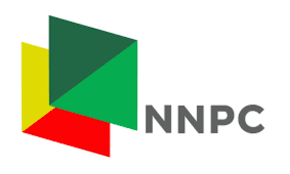In commemoration of the International Day for the Eradication of Poverty, the Director Resource Mobilization and Innovation, ActionAid, Andrew Mamedu, in an interview with The Explainer, speaks on a number of key issues, including how accountability in leadership can help pull many Nigerians out of the poverty line, need for radical leadership, and how poverty level has increased despite the promise by government to get 100 million Nigerians out of poverty, among other critical issues.
by Abubakar Yunusa, Abuja
Despite the enormous natural resources available to the country, many Nigerians are having a difficult time living, what would you describe as the root cause?
I think one of the good things we have in the country is the government being able to come up with policy programmes regularly. In some cases, the policies and programmes are not well formed. Most times, it is not because of lack of policies but the challenge of implementation. How are they implemented?
A good example is the current social investment programme; the school feeding, cash transfers, trader money, all of these are good programmes, but it got to the point where it became corrupt.
Corruption was embedded in the system. So, a programme that you probably need N500 billion to run, that ordinarily should get into the hands of people generally but, out of that N500 billion, somehow, corruption enters in and then it reduces to N400 billion, and then to N300billion and it keeps shrinking. So, the greed of our leaders is very, very central in dealing with this.
There are various things we can do to get our leadership right but previously, we have seen that we have not had it totally right. So, at various levels, there are leaders that are demonstrating and showing clear evidence of work in some ways, but not totally to the level that we want them. So, leadership is very critical.
President Mohammadu Buhari made a promised to take 100 million Nigerians out of poverty within 10 years, how well has he delivered on this so far?
We need a radical leader. Some people say we need a benevolent dictator, somebody that will be able to scale Nigeria in the right direction. We need someone that does not have a sole personal interest. So, it’s not about personal interests, it is about the country’s interest and will have the will to execute policies or programmes, as it concerns the country.
In terms of how true the present Government has gone to get 100 million Nigerians out of poverty in 10 years that means that there is the need to, at least do an average of 10 million every year. So, if we say, this government has to do an average of 10 million every year. This promise was made last year, so between last year and now, have we had 10 million people out of poverty? Our statistics is no, because in two years, between 2021 and 2022, the poverty level has increased by 2%. The population is increasing, we know but, in terms of absolute poverty, absolute poverty has also increased because 95.1 million Nigerians are still living in poverty.
So, the absolute figure is increasing, if it was reduced, maybe it would have been somewhere around 95 or so. It beats above 95 because the population is increasing. So, from the National Bureau of Statistics, MBS, poverty has not reduced. It’s still at 42%. Clearly, if we want to go by what the President has said, the answer is, no, the president has not rescued 100 million Nigerians out of poverty.
Do you think that the concept of fiscal federalism and resource control would help eradicate poverty in Nigeria?
First of all, we practice feeding bottle federalism, where at the end of every month, all the Accountant Generals of the 36 states would come to Abuja to share the resources. Of course, royalties are shared and that is what is currently helping us. Of course, we are not getting so much money.
We are not even getting any money from NNPC until we have crude oil. All of the money they said is going into petroleum subsidies, this would have been a good time for us to have a turn around and say states should manage their resources. So, states should be responsible for managing and generating their resources and pay taxes to the government at the centre. That is what true federalism is all about.
We are a federation, so if we are a federation, we should operate like a federation. So, many things in the exclusive list need to give way. Some days back, governor El rufai was saying the Federal Government has no business in running the petroleum, NNPC, and he was bold. So, if basically the person close to the president is saying this, we concur totally.
As we mark the international Day for Eradication of Poverty, what is your advice to the government on addressing poverty?
The call to the President is simple. This year, we are looking for Dignity for All in Practice. That is the theme for this year. The President has his last shot. He has seven or eight months to leave office.
The truth is, sometimes; when our leaders are there people don’t tell them the truth until they step out to see what has been really happening. The truth is, President Buhari needs to hear more from the ordinary Nigerian.
Am I doing well? Beyond just campaigning? Concerning insecurity, there has been improvement. But the level of poverty is bad. So, it is not a case of campaigning. The story is how are ordinary Nigerians seeing this? How are they responding? And, clearly, the answer is not very good.
The message to the President is, he has eight months. Eight months is a lot of time. You can put down three policies. You can ensure a free and fair election that would give Nigerians what they want. Other things President Buhari can do is to ensure that farmers get the right information and credit facilities actually get to their hands. If we are able to it reach 20million farmers, the ripple effect on the economy will be visible. Insecurity is a major issue which affects a lot. If you don’t deal properly with insecurity, you definitely would not be able to get farmers to go to the farm.
The third thing is insecurity as well. Insecurity has affected the level of foreign investment. Kaduna is doing their investment forum. If they do that every year, by now, Kaduna would have been flooded with lots of investors, but because of the level of insecurity people have stopped doing business in Kaduna. Also, deal with corruption. Pick 10 people and ensure that they are well prosecuted.
With Over 90 million Nigerians living in poverty, what kind of president should the electorate look out for in 2023?
At least, we know what we want and what we don’t want. So, we don’t want a leader that will just carry on with the status quo; we want a leader that is determined, a leader that is prudent, and one that will be able to cut cost of governance. We want a leader with the knowhow. We need a leader that understands the how, the numbers and figures and how all of these can be achieved and is practicable. Also, the track record of that leader should show that he has done it before at federal level and state level.
What’s your advice to other NGOs to key into ActionAid’s drive?
There are several organizations, including development partners, from even the World Bank which has an agenda to eradicate poverty. Development partners such as the Foreign and Commonwealth Development office, including Canada.
We as development NGOs have to strengthen our bonds and if we are able to do so and pull forces together, we’ll be able to do much better.

